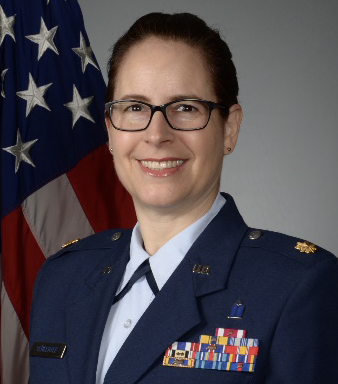By Rabbi Sarah Schechter
This week, we begin reading from Sefer Bamidbar (the Book of Numbers), and Parashat Bamidbar, meaning “in the wilderness,” (Numbers 1:1-4:20), which details the journeys of the ancient Israelites through the wilderness. We say farewell to Sefer Vayikra (the Book of Leviticus) and to Mt. Sinai, the geographical setting around which Sefer Vayikra is grounded. But thankfully, our farewell is neither total nor complete, as the priests and their priestly practices and rituals accompany us on the next phase of our journey into the holy—and toward the Holy Land.
When the rabbis of old calibrated the Jewish calendrical cycle of Torah readings, they did so in such a way that ensured that Parashat Bamidbar would nearly always be read on the Shabbat before Shavuot, the holiday that commemorates the giving of the Torah “in the wilderness.” By “coincidentally” pairing the wilderness of the parashah with Shavuot, which celebrates an event that took place in the wilderness, the rabbis were clearly intimating an essential connection between the giving of the Torah and the setting in which it occurred.
“The Lord spoke to Moses in the wilderness of Sinai…” (Numbers 1:1). The Midrash, a creative and poetic rabbinic commentary that attempts to mine the depths of Torah for her gems of wisdom, asks: “Why was Torah given ‘in the wilderness?’” In my mind, the answer instructs us in the universal way and relevance of Torah. It says that just as the wilderness is “free to all humanity, so too are the words of Torah free.” (Numbers Rabbah 1:7)
As a chaplain in the military, I take this same approach in my walk with Torah. The military’s pluralistic environment allows me to expose all “humanity” to Torah. I can offer its wisdom and its light to all who enter her chambers, to all who are willing to dialogue and wrestle with her. I have seen both Jews and non-Jews learn and grow from her wisdom, and I, in turn, have grown and been blessed by my many encounters with such individuals. The blessings of Torah truly can quench the thirst of all. “Oh, all who are thirsty, come and drink.” (Isaiah 55:1)
Shabbat shalom!
 Chaplain Major, Sarah Schechter is the Branch Chief of Readiness and Training at the 86th Airlift Wing, Ramstein Air Base, Germany, where she leads training, education, and warfighter readiness for 60 Airmen. Rabbi Schechter is the first and only female rabbi in the United States Air Force. Following in the footsteps of her father, she is a second-generation Air Force chaplain, and in the footsteps of her grandfather, an Army sergeant, she is the third generation in her family to serve in the U.S. military. Schechter is married to Rabbi Joe Charnes, and they are the parents of a beautiful daughter.
Chaplain Major, Sarah Schechter is the Branch Chief of Readiness and Training at the 86th Airlift Wing, Ramstein Air Base, Germany, where she leads training, education, and warfighter readiness for 60 Airmen. Rabbi Schechter is the first and only female rabbi in the United States Air Force. Following in the footsteps of her father, she is a second-generation Air Force chaplain, and in the footsteps of her grandfather, an Army sergeant, she is the third generation in her family to serve in the U.S. military. Schechter is married to Rabbi Joe Charnes, and they are the parents of a beautiful daughter.